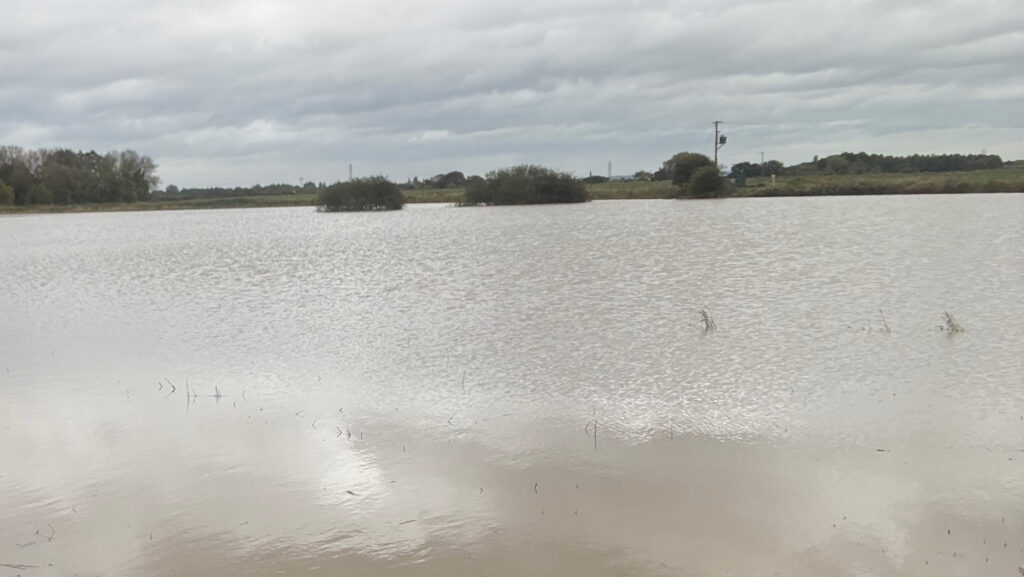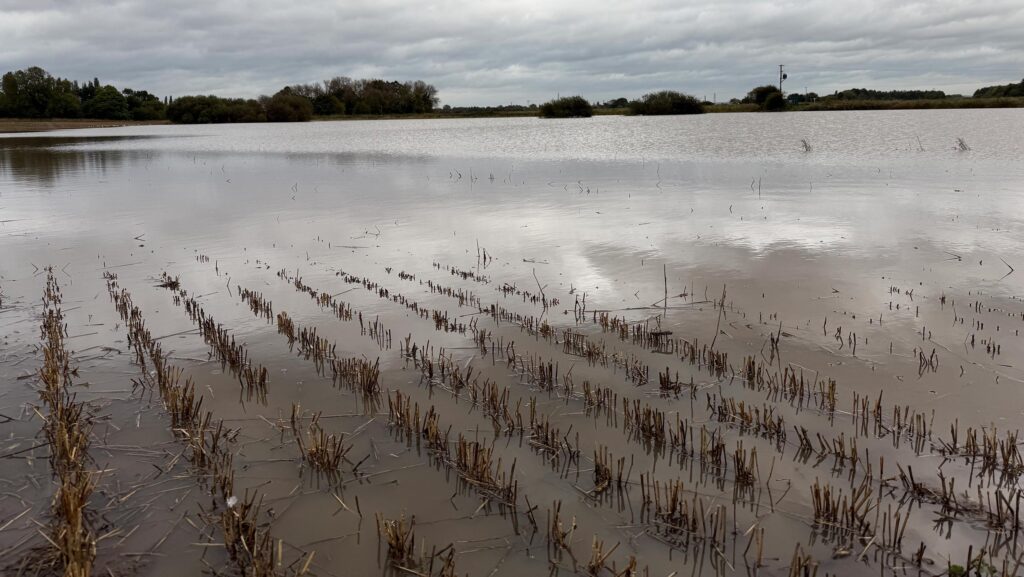Flood-hit farmers call for National Rivers Authority to be reinstated
 © Olly Harrison
© Olly Harrison Flood-hit farmers are calling on the government to bring back the National Rivers Authority to maintain Britain’s waterways and drainage systems, as large swathes of farmland lie flooded again.
Following a record-breaking 18-month spell of wet weather, some crops are still to be harvested and the autumn cereal drilling campaign has yet to start in most places.
In others, it has been washed out altogether.
Farmers and landowners are concerned that years of neglect from the Environment Agency (EA) have left the country’s waterways and drainage systems clogged and in disrepair.
See also: Video: FW Investigates – would dredging reduce flooding?
Many insist the EA – the government agency responsible for the maintenance of rivers and waterways in England – is not fit for purpose to cope with the change of weather patterns.
There is also frustration among farmers that attempts to clear their own waterways risk prosecution, as seen in the case of Herefordshire potato farmer John Price, who was jailed for river maintenance the EA deemed illegal.
The Met Office said September has been a very wet month for southern and central England in particular, with some counties seeing more than three times their average September rainfall.
Dutch lessons
Merseyside arable farmer Olly Harrison argues that much of the UK’s flooding could be avoided with better drainage management.

© Olly Harrison
He has suggested that EA officials should travel to the Netherlands to learn from the Dutch system – and he has even offered to fund their coach travel.
Mr Harrison said rainfall data recorded on his farm by his father Tom shows this September was only the fifth wettest in the past 48 years, with 1976 having 25% more rainfall.

© Olly Harrison
Somerset beef farmer James Winslade, whose 320ha farm in Bridgwater was left under water for three months in the 2014 winter floods, agrees that the government must change its approach to flood management and plan ahead of the change in weather patterns.
He says proactive river maintenance would be far less costly than dealing with major flooding events, such as the 2014 Somerset floods, which cost the region an estimated £147m.
Mr Winslade praised the Somerset Rivers Authority, set up after those floods by the then Defra secretary Owen Paterson, suggesting it should be rolled out nationwide, with sustained government investment to repair and futureproof rivers against severe weather events.
Since 2014, Mr Winslade said a certain amount of maintenance has been done to pinch points along the River Parrett and the River Tone, which has “helped hugely”.
But long-term investment in river maintenance is what is really required, he added.
Chronic underinvestment
Innes Thomson, chief executive of the Association of Drainage Authorities, pointed to a long-standing issue with underinvestment in river maintenance, noting a “chronic decline” over several decades.
He called for the Labour government to shift its focus from predominantly capital spending to a more balanced approach that includes greater investment in maintenance.
But he added: “I don’t think that significant change is required of the current bodies.
“We need a different way of working with them linked to a change in funding policy.”
Julie Foley, the EA’s director of flood risk strategy, said the agency recognised the challenges that flooding presents to rural communities.
“That is why we have launched the new Rural Flood Resilience Partnership, to better understand the impacts of flooding on rural areas,” she said.
The EA had carried out 216,000 checks on “flood assets” in the past year, up from a previous average of 150,000, while spending on maintenance and repair reached £236m.
